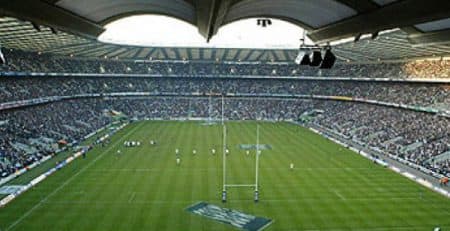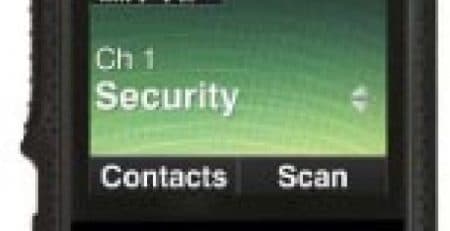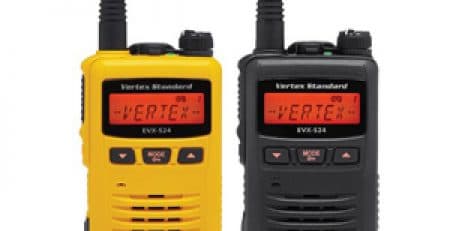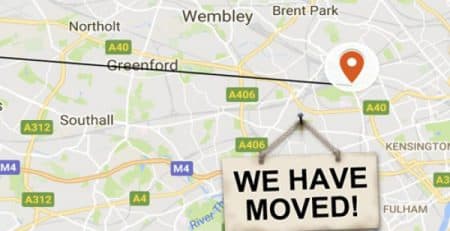IP Radio System Chosen by Thatcham Research Crash Test Team
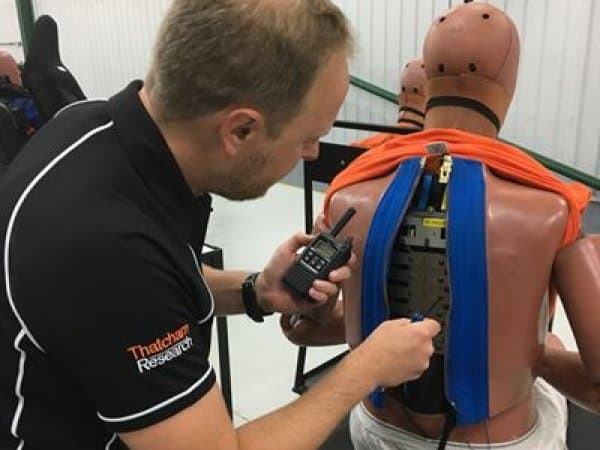
An innovative IP based two-way radio system is providing vital communication in the set up of crash test scenarios at Thatcham Research. Thatcham Research is the British Insurers testing and repair research centre. As well as its world leading crash and track research, Thatcham Research tests and accredits crash repair parts and vehicle repair technicians. The Icom IP based radio system was installed by EARS Plc.
A founder member of the international Research Council for Automobile Repairs (RCAR), Thatcham Research has also been a member of the European New Car Assessment Programme (Euro NCAP) since 2004.
Alex Thompson, Senior Crash Engineer/Euro NCAP Inspector at Thatcham Research said, ‘In the crash lab we conduct Euro NCAP testing for probably the largest range of new cars coming to market every year. As a result, Euro NCAP provides consumer advice on how cars rank against each other in terms of safety in similar size categories. Typically, the tests comprise of a suite of four full scale impacts: a frontal offset impact into a deformable barrier at 40 miles an hour, frontal full width rigid wall impact at 30 miles an hour, side impact into a barrier at 30 miles an hour and a pole side impact – where the car runs sideways on a moving platform into a rigid pole, at 20 miles an hour.’
‘We also conduct sled testing for whiplash assessment of vehicle seats, assessments of child seat fitment into vehicles and assessment of seatbelt reminders and speed limiters. Our colleagues in the track team do Autonomous Emergency Braking (AEB) testing and other safety tests, regarding changing lanes and avoiding pedestrians or cyclists.’
‘The crash safety team is made up of around 25 staff. The work is highly meticulous and technical and requires a great deal of planning. Clear and consistent communication between the crash test team is vital. We used to have a traditional radio system but it didn’t give us the coverage we required and we kept suffering interference.
The introduction of 14 IP100H handsets/communicators with coverage provided by existing WLAN access points, has notably improved two-way communication. The IP system differs from a normal two-way radio system in that it provides secure digital communication over an IP infrastructure.’
Alex continues, ‘We needed two-way communication across the lab. Before a crash test we have crash technicians in our control room setting up the facility to run the test. We also have technicians attending and prepping the car at the start position, some 85 metres away. Communication between those two groups is fundamental; something which just isn’t possible with mobile phones. The ability to maintain open lines of communications with everyone simultaneously, to confirm that everyone is in a safe position for the test, while making sure that all the set up work has been completed to exacting standards, is of vital importance.’
Tom Leggett, Crash Test Engineer at Thatcham Research added, ‘Safety is paramount. The issue we had with the previous radios was that if you tried to communicate with someone you couldn’t necessarily understand what they were trying to say. With the new system, when someone calls you, it’s possible to hear what they are saying instantly and with clarity.’
Alex said, ’EARS PLC has been a good two-way radio provider to work with. They came in and worked closely with our IT department to set up a demonstration, set up the radios in practice and test them. By the time we got hold of them, it was literally a case of plug and play.’
He added, ‘The performance has been good and we may be looking at extra access points to allow further coverage across the site. The ability to be able to contact a colleague over the road and know they are there would be beneficial.’
For IP and two way radio hire options, contact EARS PLC.
For more details about Icom’s IP Advanced Radio System and the benefits it can provide your business, visit http://www.ipradio.co.uk.

